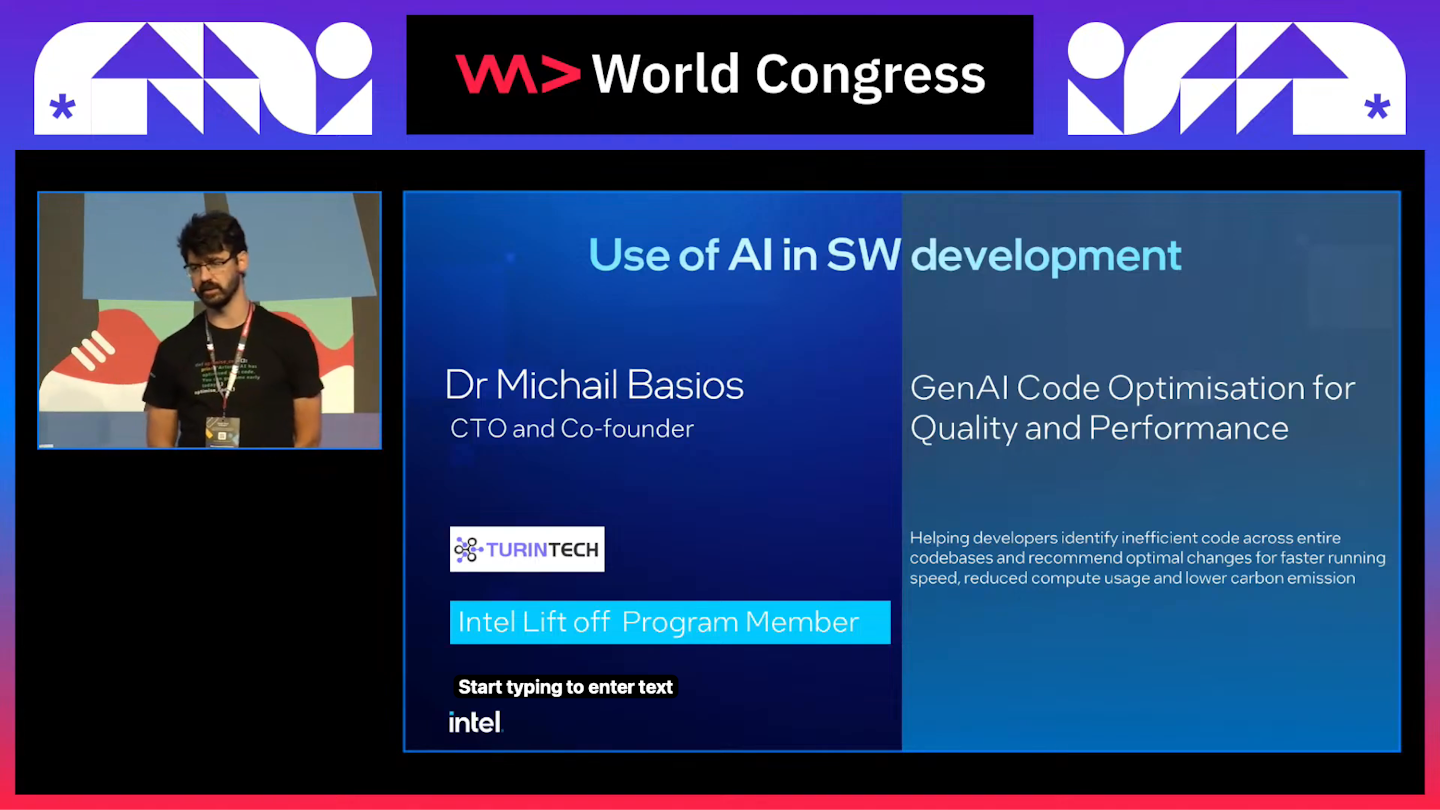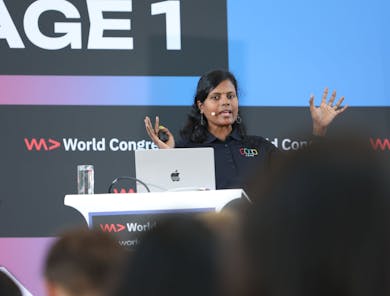In the ever-evolving world of technology, AI continues to be the frontier for innovation and transformation. Stephan Gillich, from the AI Center of Excellence at Intel, dove into the subject in a recent session titled "Bringing AI Everywhere," shedding practical insights on how AI is influencing and will continue to influence various sectors. In this blog post, we will explore the key points discussed by Stephan and provide a comprehensive understanding of the current AI landscape and its future.
Every Company is Becoming an AI Company
"Every company is an AI company, would you agree with that?" - Stephan Gillich
The session kicks off with a bold assertion: Every company today is, or will soon be, an AI company. With AI's transformative potential already visible, it's evident that its impact will mirror that of the Internet.
Stephan emphasized that just as the Internet has networked nearly every aspect of our lives, AI too will integrate into our daily applications, both professionally and personally. However, unlike the Internet which required extensive physical infrastructure, AI primarily relies on software and hardware innovation, making its widespread adoption faster and more feasible.
The Current State of AI Adoption
Challenges and Barriers
While the potential for AI is vast, adoption is still in its nascent stages. Stephan shared data points from a Convergence study that highlighted the current barriers:
- Only 10% of organizations launched a Generative AI (Gen AI) solution in 2023.
- 46% identified infrastructure as the biggest challenge to productizing Gen AI solutions.
Integrating AI into every application still faces significant hurdles, including infrastructure limitations, openness, and choice in AI solutions. Enterprises, in particular, find these challenges daunting.
The AI Co-Pilot
At present, we are in what Stephan described as the "Age of AI Co-Pilots." This phase involves individuals within enterprises using AI to augment their tasks, primarily driven by public and some enterprise data. The progression to more integrated AI solutions in workflows and eventually fully automated AI functions will hinge on access to more comprehensive domain-specific data.
Overcoming AI Adoption Barriers
Innovation Drivers
Stephan underscored Intel's four pillars to accelerate AI proliferation:
- Accelerate Innovation: Fostering an open software environment to enable developers to build on existing innovations.
- Maximize Value: Ensuring cost-effective and sustainable AI solutions across various platforms.
- Deploy Everywhere: Facilitating AI workloads across clouds, data centers, and personal devices in a hybrid fashion.
- Ensure Security and Responsibility: Adhering to evolving regulations like the AI Act to maintain data privacy and security.
Different Needs for Different Users
Stephan highlighted the differing requirements between power users (training AI models extensively) and general-purpose users (occasional AI use). Ensuring choice in platforms and fostering an open software environment are critical to addressing these diverse needs.
Intel's Technological Arsenal
Intel is equipped with a variety of products designed to optimize AI workloads:
- Intel Gaudi: Tailored for demanding AI tasks, this architecture competes with GPUs in training and inferencing large models.
- Xeon Processors with AMX: Enhanced CPUs with built-in AI acceleration for data centers, efficient for running enterprise-level AI applications.
- Intel Core Ultra with NPU: Integrating neural processing units in laptops to support local AI applications with low power consumption.

Hybrid AI: A Symbiotic Relationship
Stephan introduced the concept of Hybrid AI, where AI workloads are distributed between local devices and cloud infrastructure. This approach combines the best of both worlds, leveraging the cloud's computational power and the client's privacy and latency benefits.
Open Software Stack
An open software stack is pivotal in enabling AI adoption across different platforms:
- Open Tools: Supporting the entire AI workflow from data collection to inferencing.
- OpenVINO: A tool to deploy trained models across varied hardware.
- OneAPI: Middleware minimizing hardware dependency and ensuring an open environment for all AI tools.
"Choice and openness, two key things." - Stephan Gillich
Real-World Application: Turing Tech
Stephan brought up Michail Basios from Turing Tech to demonstrate a practical application of AI in software development. Turing Tech uses AI to optimize code by identifying inefficiencies and translating code to utilize Intel's oneAPI for enhanced performance.
"We try to do that code translation on where our solution is deployed. It's all on the Intel developer cloud." - Mike, Turing Tech

RAG: A Breakthrough for Enterprises
Enterprises are hesitant to compromise their data privacy. Retrieval-Augmented Generation (RAG) offers a solution by combining enterprise data with large language models without exposing sensitive information.
Open Platform for Enterprise AI (OPEA)
OPEA, a Linux foundation-backed initiative, simplifies generative AI adoption by providing architecture blueprints and reference implementations, focusing on technologies like RAG.

Ensuring Security and Responsibility
The final pillar focuses on security and responsible AI usage. Intel's technologies, such as TDX for hardware security and Intel Trust Services, provide a foundation for secure AI deployments in compliance with regulations like the AI Act and GDPR.
"AI is working with a lot of sensitive data and that's why we need to think about that first time and not as a second thought." - Stephan Gillich
Conclusion
Bringing AI everywhere is not just a vision but a rapidly approaching reality. Stephan Gillich's insights illuminate the transformative potential of AI and the practical steps needed to overcome current barriers. Intel's commitment to innovation, value maximization, ubiquitous deployment, and security ensures that AI will be an integral part of every company's future.
Happy innovating!











